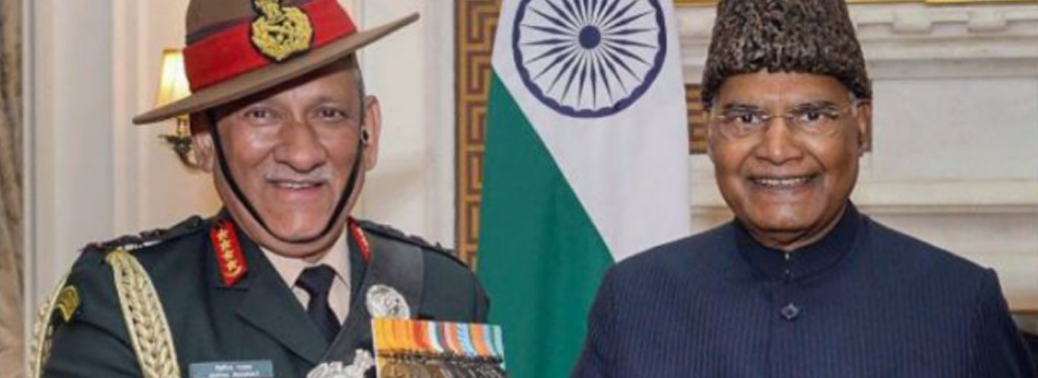CHIEF OF DEFENCE STAFF (CDS)
08, Jan 2020

Prelims level : Polity and Governance
Mains level : GS-II Appointment to various Constitutional posts, powers, functions and responsibilities of various Constitutional Bodies.
Context:
- The Creation of the post, Chief of Defence Staff erodes civilian supremacy over the defence establishment
The Outline of India:
- In 1947 Lord Ismay, the Chief of Staff to Lord Mountbatten, Governor General of India, recommended a three-tier higher defence management structure to Prime Minister.
- Three committees were constituted:
- The defence committee of cabinet preside over by the Prime Minister
- The Defence Minister’s Committee chaired by the Defence Minister
- The chief of Staff Committee integrated into the military wing of the Cabinet Secretariat.
- The chair of the committee was rotational, with Service Chief longest in the committee becoming the chairperson.
- This procedure is operational into the middle of 1950s despite the commander-in-Chief only being an invitee to the Defence Committee of Cabinet.
- After the 1962 Sino-Indian war, the Defence Committee of the Cabinet first morphed into the Emergency Committee of Cabinet and then later into the Cabinet Committee on Political Affairs’.It is now the Cabinet Committee on Security, or CCS. This system has served India well over the years.
Kargil Review Committee (KRC):
- The first proposal for a CDS came from the 2000 Kargil Review Committee (KRC), which called for a reorganisation of the “entire gamut of national security management and apex decision-making and structure and interface between the Ministry of Defence and the Armed Forces Headquarters”.
- The Group of Ministers Task Force that studied the KRC Report and recommendations, proposed to the Cabinet Committee on Security that a CDS, who would be five-star officer, be created.In preparation for the post, the government created the Integrated Defence Staff (IDS) in late 2002, which was to eventually serve as the CDS’s Secretariat.
About CDS:
- The CDS will be ranked as four-star General.
- He will head the Department of Military Affairs (DMA), which is created in the Ministry of Defence.
- He will act as the Principal Military Adviser to the Raksha Mantri [RM] on all tri-Services matters.
- He will be a Permanent Chairman to the Chiefs of Staff Committee (COSC).
- He will function as the Military Adviser to the Nuclear Command Authority.
- He will be above the three Service Chiefs, as a part of higher-level military reforms.
- The three Chiefs will continue to advise RM on matters exclusively concerning their respective Services. CDS will not exercise any military command, including over the three Service Chiefs, so as to be able to provide impartial advice to the political leadership.”
About the Contradiction and the Design Flaw:
- As Secretary in charge of the Department of Military Affairs (DMA) having superintendence over the Indian Army, Indian Navy and Indian Air Force, there would be an implied subordination of the three service chiefs to the CDS notwithstanding any declaration to the contrary.
- As Secretary of the DMA, the CDS is tasked with facilitating the restructuring of military commands, bringing about jointness in operations including through the establishment of joint/theatre commands.
- The CDS, as Permanent Chairperson of Joint Chiefs of Staff Committee, would outrank the three service chiefs even though theoretically all are four stars.
- The advice of the CDS could override the advice of the respective Service Chiefs on critical tactical and perhaps even strategic issues.
- The reporting structure of the three services to the Defence Minister would now be through the CDS; if not immediately it would become the norm over time.
- Currently, the service chiefs report directly to the Defence Minister, in practice all files and decisions are routed through the Defence Secretary.
- The fact is that the defence of India is managed by the three services who would now report to the DMA. Since the DMA would exercise control over the three services, it virtually makes the CDS the ‘Supreme Commander of the Indian Armed Forces’.






